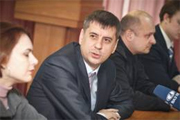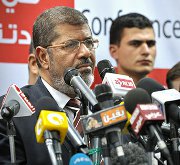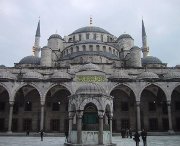 |
| (Image courtesy Voice of the Martyrs) |
It's those actions and others like them that have drawn closer scrutiny from the United Nations. The UN's special rapporteur for human rights in Iran has said the country has shown "no sign of improvement" in human rights and "continues to warrant serious concern."
Spokesman for the Voice of the Martyrs USA Todd Nettleton says Iran dismissed the findings. "Their instant response was, ‘Well, this is biased. He doesn't know what he's talking about.' But the reality is: this is what we see happening inside Iran."
There are estimated to be as many as 370,000 Christians in Iran, according to the most recent U.S. State Department report. The UN report noted Iran's "authorities continue to compel licensed Protestant churches to restrict Persian-speaking and Muslim-born Iranians from participating in services, and raids and forced closures of house churches are ongoing.... More than 300 Christians have been arrested since 2010, and dozens of church leaders and active community members have reportedly been convicted of national security crimes in connection with church activities, such as organizing prayer groups, proselytizing, and attending Christian seminars abroad."
Recent attempts to show a more moderate face aren't really convincing, adds Nettleton. "They're not going to fool the people inside Iran who know this is going on, and they're not going to fool the international community because the stories are just too consistent. Even though they would like for the information to stay locked in Iran, it does get out, and groups like the Voice of the Martyrs and others are able to say, ‘This is what's really happening behind the scenes.'"
In fact, a Voice of the Martyrs Canada report indicates Iranian Christians are requesting prayer following a series of arrests that took place about the time the government released some prisoners in an effort to appear more liberal.
At least 20 Christians, mainly from Muslim backgrounds, were detained in Tehran, Karaj, Isfahan, and Tabriz. As a sign of being politically progressive, the government of newly-appointed President Hassan Rouhani pardoned and then released 11 prisoners of conscience on September 20. Two of them were Christians.
Meanwhile, Christian Solidarity Worldwide released a report that documented the sentencing of four Christian men to 80 lashes on Oct. 6. The men were arrested in a house church after a communion service last December and charged with consuming alcohol in violation of the theocracy's strict laws. The group has ten days to appeal.
How does the new regime respond to international concerns? It's not really up to the administration, explains Nettleton. "Presidents will come and go. The Supreme Council is really where the power's at in Iran. They will decide what the human rights situation is in Iran, and as I said, they're Islamic mullahs, so they're going to go according to Islamic law which teaches that if you leave Islam to follow another religion like Christianity, you're an apostate. The call for that is the death penalty."
Young Iranians, who make up a majority of the population, are dissatisfied with both their religion and government. Why? "One of the real side effects of the human rights situation and the abuse of people in Iran is that it's being done in the name of the government, which is an Islamic government. The people identify that as being done by Islam, so they see the failure of Islam in their country, and they are very open to the Gospel."
That's resulted in a rapidly-growing Church in Iran, which cycles back around again to clerical rulers who see Christianity as a threat to Iran's majority ultra-orthodox Shiite Islamic religion, a crackdown, disillusionment, and more growth.
Persecution has intensified since 2005, with marked increases in 2011 and 2012. Authorities raid house church services, detain worshipers and threaten church members. The publishing, importation, or reprinting of Bibles or Christian literature is illegal.
VOM supports satellite TV and radio broadcasts that are instrumental in sharing the Gospel and teaching the growing church. Nettleton observes, "That's the good news. It is coming with persecution; we believe there are 42 publicly known cases of Christians who are currently in prison in Iran, so that growth is coming with a price."
It's very difficult for us to truly understand the tremendous pressures Muslim converts face in a society that harshly opposes the Christian faith. The Voice of the Martyrs comes alongside this remnant. "One of the very significant ways that we're involved in Iran is to produce Bibles for the Iranian church and deliver them--get them into the hands of the Christians inside Iran," Nettleton explains. "Another thing that we're involved in is helping people to advocate and encourage some of those Christians who are in prison."
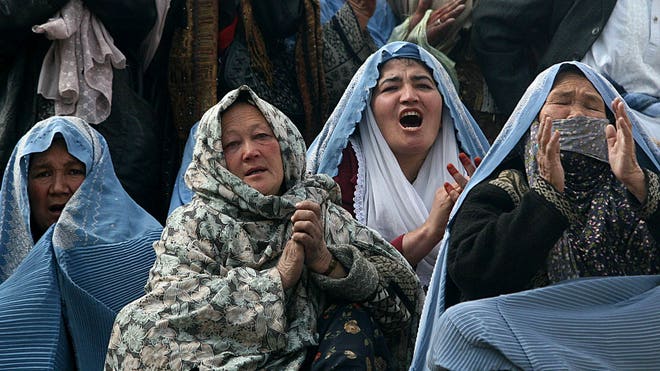

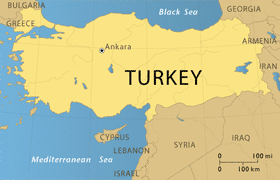

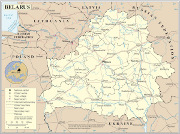

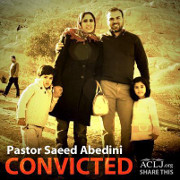
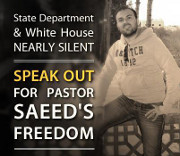


.svg.jpg)
